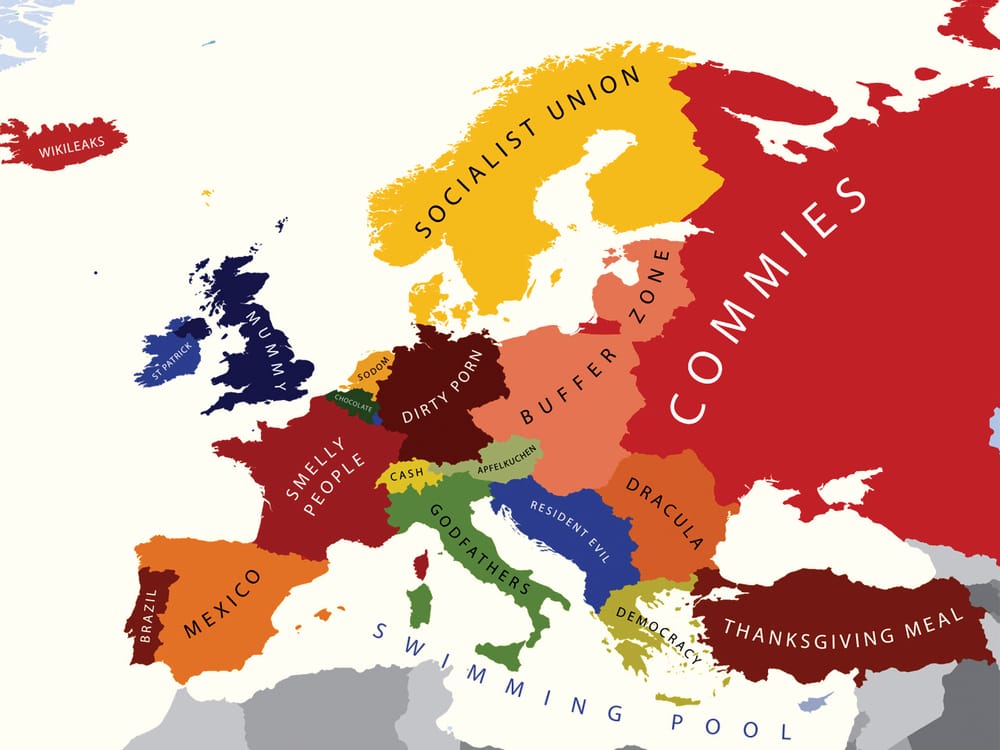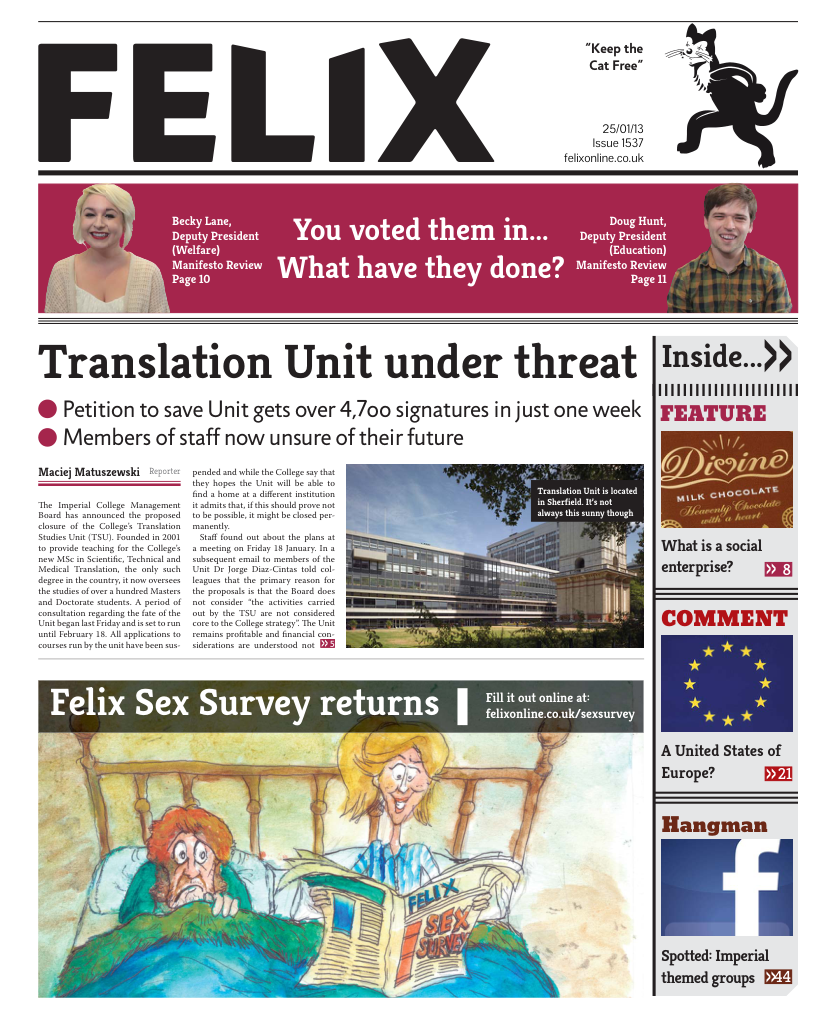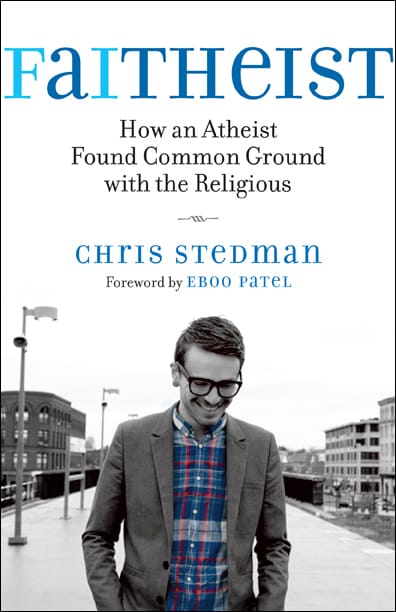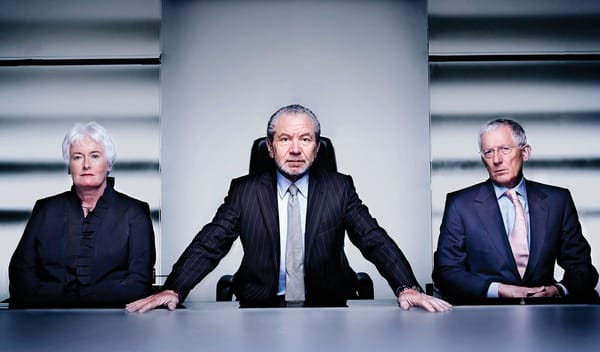United States or Europe
We need more, not less European integration. Much, much more.

One of the most baffling things I’ve come across constantly when talking to British people is their use of the word “European” to mean “Beyond The Channel”, as if sharing strong political, historical, geographical, economic and cultural ties weren’t enough to make the UK part of the continent. Rule Britannia, God Save The Queen, and all of that, but isn’t it time to put the nostalgia for the 19th century away in favour of some common sense?
I get it that you used to be an awesome nation. I still hear people boast that the British Empire covered a quarter of the world, and that you civilised (read: oppressed) countless people around the globe, despite it being as much of a relic as your grandfather’s racism and anti-suffragists, and equally relevant today. It’s understandable:Britain had a pretty sweet gig, calling all the shots for more than a hundred years, and it’s good to be part of the winning team; but we can’t cling to this faded past while the world has changed. We were all heartbroken when Europe had to relinquish its status as continent of superpowers to the USA and the USSR, but the truth is that it could not and cannot compete with them and it cannot exert the same kind of influence – or, at least, it can’t while it stands divided, squabbling amongst themselves.
I believe in a strong, united European state, a United States of Europe, if you will. Perhaps this is only a dream of mine, but I have hopes that it will happen one day. After all, the peoples of Europe share far more than most realise: the British like to concentrate on the differences, like bidets and funny accents and the ability to see the sun more than three days a year, and yet we have common cultural experiences that make all of us the same. Our governments, despite small local variations, all work in the same way; we grew up in similar environments, going to similar school systems, watching similar TV programs; our calendars are largely identical; the goods we buy and the foods we eat come from the same tradition. Now that we have the internet, we can be ever more alike. Sure, there will be discrepancies here and there, but people across the continent will be able to strongly relate to one another because we have all live similar sorts of life. And, of course, there is an international political organisation that has kept us together for the past half a century.
Ah, the EU: a reviled bunch of corrupt bureaucrats busy determining the correct curvature of the banana when they aren’t taxing and obstructing; or the seed of a more just state that will represent Europe on the global stage without getting mired in squalid local diatribes, depending on who you ask. It has its flaws, of course, because trying to get governments so stubborn to agree on common measures can lead to inefficiencies and even injustices. The British public likes to rag on when the EU has problems in trying to manage twenty-seven countries worth of economies, obstinate nationalism and partisan politics, and yet it soils itself with excitement if the Royal Family as much as farts, proving that the noblest goals of the others merit mockery if they come with effort and difficulties, but your nation’s idiosyncrasies are important and cherished traditions. Because that’s what the European Union is: a noble goal, the ideal that people that share so much can cooperate to do great things instead of fighting for crumbs amongst themselves.
After all, the peoples of Europe share far more than most realise ... we have common cultural experiences that make all of us the same.
There was a lot of grumbling when the EU got the Nobel Peace Prize, as many claimed that it hadn’t done anything to deserve it; you know, as if it hadn’t guaranteed the lack of war of more than fifty years. People take it for granted now, but Europe has never enjoyed this unity and stability in its history. From the Middle Ages to WWII, being in Europe meant that at some point during your lifetime you could be sent to war or that your country would be at war. Maybe you’re an Austrian sent to conquer Italy, or you’re a German fighting for your religion against the Swedes, or you’re an Englishman trying to prevent the French from conquering Spain, but the longwinded point is that European nations fought a lot. It was pretty much a given that conflicts would eventually erupt over this or that issue: the history of the continent is one of near-perpetual battle. Today, it would be unthinkable and impossible for any two EU member states to come to arms.
Economically speaking, it has created prosperity and wealth and it has made the Euro, an experiment that is bringing Europe closer and assuring that we grow together. Like it is possible with all experiments, not everything has gone perfectly, but the advantages outweigh the disadvantages, and the negatives are reasons to better the system and make it more just.
It is still more of a supranational organisation with limited powerrather than an actual political entity, but things can change. They won’t, however, if Britain clings to its outdated and unfeasible Splendid Isolation (Britain and all the other countries. The UK, as bad as it is, is not the only obstacle on the way to integration). The notion that a country the size of the UK can still be a superpower or at least not be dependent on someone else’s power is as prevalent as it is wrong: Britain has not been able to compete on the global scale, and will be able to do so even less if it abandons its only way to relevance short of becoming the 51st US state. And if you say that the UK aims at being left alone and independent even at the cost of not being able to have a say on international matters, then I guess I haven’t learned much about the British.
My motive for the United States of Europe is one of brotherhood, unity and freedom. I want it because it makes sense, economically, culturally, historically, but if I can’t convince you, then perhaps I can bribe you: if the EU were one, united country, it would be the largest economy in the world by a vast margin; it would represent more than 500 million people; it would be able to exert more influence than any other and it would be able to push international agendas, from climate change to social equality, that no country on its own could hope to achieve: wouldn’t you want to be a part of that?







